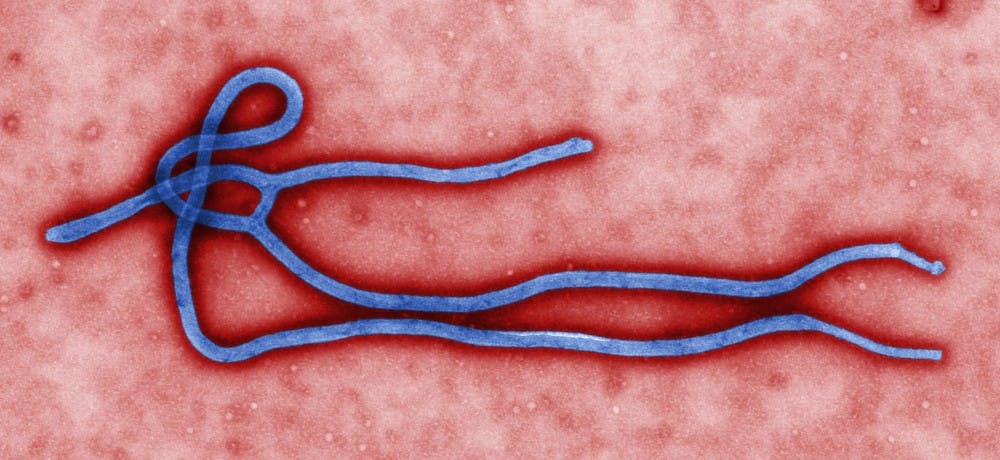Thomas Duncan, the first patient diagnosed with Ebola in the United States, died this morning in a Dallas hospital, according to Texas Health Presbyterian Hospital.
“It is with profound sadness and heartfelt disappointment that we must inform you of the death of Thomas Eric Duncan this morning at 7:51 a.m.,” the Texas Health Resources statement said. “Mr. Duncan succumbed to an insidious disease, Ebola. He fought courageously in this battle. Our professionals, the doctors and nurses in the unit, as well as the entire Texas Health Presbyterian Hospital Dallas community, are also grieving his passing. We have offered the family our support and condolences at this difficult time.”
Duncan’s death came at a time when questions and fear surrounding the Ebola breakout are increasing both internationally and locally. At Richmond, the resident assistants of Freeman and Robins halls organized a conversation with Professor Sandra Joierman to discuss whether Richmond students need to be worried about the epidemic.
Joireman is the chairwoman of international studies and a professor of political science. She is also part of the African Studies Association, with a special interest in Liberia. “I am interested in Ebola because I am interested in Liberia,” Joireman said.
Joireman said there was no reason to panic because in order to contract the virus there would have to be close contact with someone who already had symptoms, which include high fever, vomiting and diarrhea.
Though Joireman insisted students have nothing to be afraid of at this time, a Gallup poll published Tuesday indicated that 22 percent of Americans said they were worried about contracting Ebola, a figure consistent with Americans’ fear of the H1N1 virus outbreak in 2009. The percentages exceed or match the H1N1 numbers during 2009 despite an exponentially higher prevalence of H1N1 in the U.S. during that time.
Joireman said the rate of death from the Ebola virus was between 50 and 70 percent, but with good health care and proper isolation the virus could be controlled. That percentage refers to those infected in both developing and developed countries.
She also said although there’s not a vaccine or a known cure for it, the human body can actually fight it. Multiples laboratories are also working on finding a cure.
Ebola is a highly contagious viral disease that was first found in fruit bats that lived in Central Africa. The virus was transmitted to humans through close contact with the blood, feces, saliva or any other natural fluid of infected animals such as chimpanzees, monkeys or fruit bats.
The disease is mostly found in Africa, especially in the rural areas of Liberia, Guinea and Sierra Leone. Joireman said that even though it was easier to control the disease when it appeared in rural areas, most of these areas have had such poor health care that it could not be treated or confined effectively.
Today, 38 years after the Ebola virus first appeared in two simultaneous outbreaks in Sudan and the Democratic Republic of Congo, the virus has spread throughout Europe, the United States, Russia and the Philippines.
Contact reporter Marta Quero at marta.quero@richmond.edu and staff reporter Clay Helms at clay.helms@richmond.edu
Enjoy what you're reading?
Signup for our newsletter
Support independent student media
You can make a tax-deductible donation by clicking the button below, which takes you to our secure PayPal account. The page is set up to receive contributions in whatever amount you designate. We look forward to using the money we raise to further our mission of providing honest and accurate information to students, faculty, staff, alumni and others in the general public.
Donate Now



